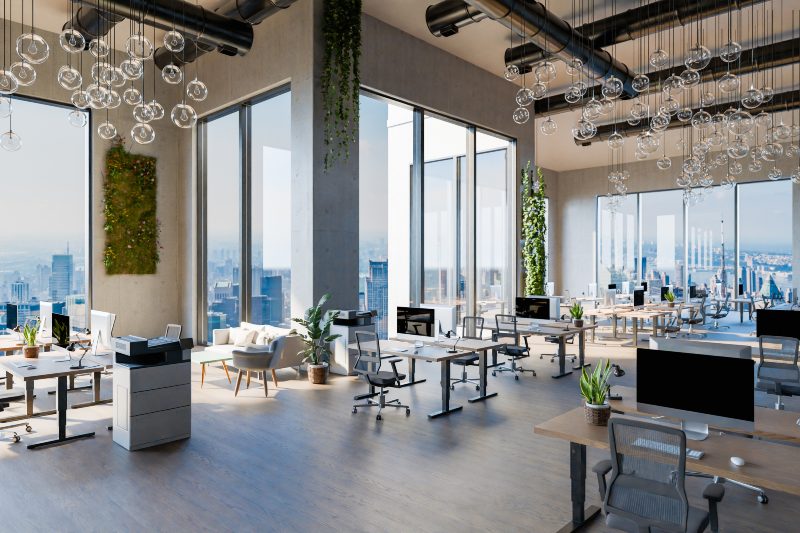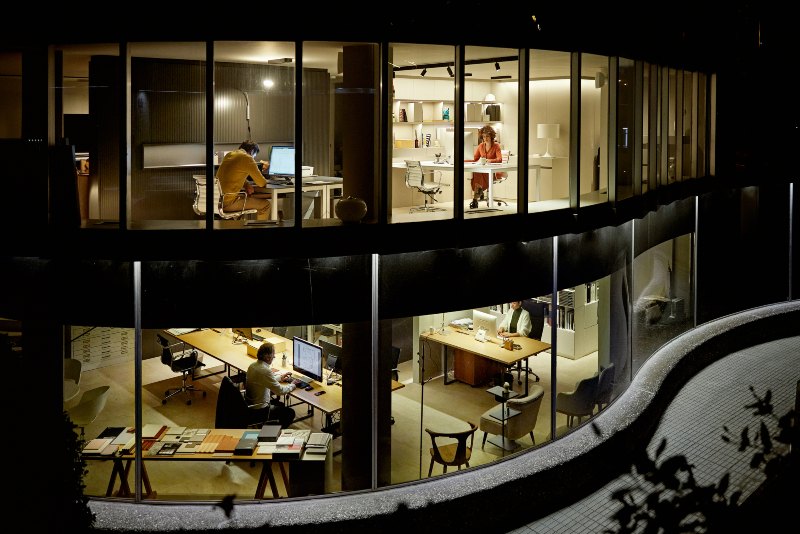Choose the Best Metal Building Size for Your Business
Are you contemplating constructing a metal building for manufacturing, warehousing, or agricultural purposes? Selecting the appropriately sized custom metal building is essential to meet your business needs. Learn the benefits of custom metal buildings and the factors to consider when determining the best size for your new commercial structure.

Benefits of Custom Metal Buildings
You could always buy a preexisting property, but the ability to customize the dimensions and total square footage of your metal building has many benefits:
- Versatility: Custom metal buildings can be tailored to suit any business requirement, from office space and storage to indoor sports and recreation. This flexibility allows businesses to design spaces that align perfectly with their operational needs.
- Durability: Metal buildings are renowned for their strength and longevity. They withstand harsh weather conditions and require minimal maintenance, making them a cost-effective choice over other building materials.
- Energy efficiency: Modern commercial metal buildings are designed to reduce energy consumption with efficient features like insulated panels and reflective roofing materials.
- Quick construction: Pre-engineered metal buildings can be erected faster and with less labor than traditional structures, shortening construction times and allowing businesses to start operations sooner.
- Expandability: Thanks to the modular nature of metal structures, these buildings are easy to expand. You can add more space as your business grows without significantly disrupting your daily operations.

10 Factors to Consider When Choosing a Metal Building Size
To maximize the benefits of your commercial metal building, it must fit your needs. Here are 10 factors to account for when designing your structure.
1. Purpose of the Metal Building
Consider the flow of activities within your building. For instance, manufacturing may require extensive open space for machinery and production lines, whereas office spaces need layouts to facilitate employee communication and productivity. Storage buildings demand different configurations, including high ceilings and doorways for vertical storage and easy forklift access. Clearly defining the building’s purpose helps specify the ideal dimensions and structural features. Consider the flow of activities within your building. For instance, manufacturing may require extensive open space for machinery and production lines, whereas office spaces need layouts to facilitate employee communication and productivity. Storage buildings demand different configurations, including high ceilings and doorways for vertical storage and easy forklift access. Clearly defining the building’s purpose helps specify the ideal dimensions and structural features.
2. Required Clear Height
Clear height refers to the distance from the floor to the lowest overhead obstruction, such as beams and doorway head jambs. If your operations involve tall equipment, storage racks, or overhead cranes, the clear height is a crucial consideration. Proper planning is necessary to maximize functionality and safety.
3. Clear Span vs. Internal Columns
Choosing between a clear-span structure and one with internal columns affects cost and functionality. Clear-span buildings offer unobstructed space, ideal for large equipment or open floor plans, but the engineering required may raise construction costs. Buildings with internal columns are more cost-effective, but this might limit how you can use the space. Your decision should balance budget constraints with operational needs.
4. Number of Occupants
The anticipated occupancy influences a building’s ideal size and layout. More employees require additional space for workstations, common areas, and amenities. For agricultural buildings, the amount of livestock determines the necessary floor space and layout for feeding, movement, and housing. Ensure sufficient space for all occupants to enhance productivity and comfort.
5. Building Location
The physical characteristics of your site, including soil quality, topography, and access points, impact the building’s design and size. Sites with challenging conditions may require additional preparation. Besides this, proximity to transportation hubs and suppliers may affect operational efficiency. Evaluating these factors helps select a building size that maximizes site potential and minimizes construction challenges.
6. Property Constraints
Local zoning laws, property boundaries, and easements may limit your building’s size and placement. Review the regulations that dictate setbacks, building heights, and allowable uses early in the design process. Compliance with these constraints is essential to avoid legal issues and costly redesigns.
7. Building Codes
Building codes establish standards for construction, including structural integrity, safety, and energy efficiency. These regulations vary by location and influence your building’s approved design, materials, and size options. Consulting a knowledgeable commercial metal building contractors is the best way to navigate these codes.
8. Storage Needs
Consider the type and volume of items you need to store, as well as any special conditions like climate control. Custom metal storage buildings can be designed with specific features such as insulated panels or specialized shelving systems to optimize space utilization. Proper planning ensures that your building meets current and future storage needs.
9. Budget
Your budget is another important factor. Larger buildings naturally incur higher costs, not only in construction but also in ongoing maintenance and utilities. Strive to balance functional requirements with financial constraints.
10. Future Growth
Planning for the future is crucial when selecting a building size. Consider potential business growth and where you might require additional space. Custom metal buildings are inherently flexible and can be designed for easy expansion, saving time and money as your business evolves.
Contact Advanced Building Corporation in South Central Wisconsin
Advanced Building Corporation has been a trusted custom metal building contractor in South Central Wisconsin for over 30 years. Our site superintendents, many of whom have over 25 years of field experience, ensure your project is completed on time and within budget. We offer design-build services for industrial, warehouse, office, and retail spaces, among others. Contact us today to start your custom metal building project and benefit from our commitment to transparency and exceptional construction service.
